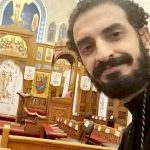By Coptic Solidarity
Fourteen years have passed since the Maspero Massacre — one of the darkest and most defining moments in Egypt’s post-revolution history. On October 9, 2011, peaceful demonstrators—most of them Coptic Christians—marched from the Shoubra district of Cairo toward the headquarters of the state-run television building, Maspero, to protest the demolition of a Coptic Orthodox church in Aswan by Islamist extremists. They came carrying crosses, Egyptian flags, and songs of unity, demanding equal rights and the protection of Egypt’s oldest Christian community.
Instead, the day ended in bloodshed.
A March for Justice Turned Massacre
According to contemporaneous reports and eyewitness testimonies, demonstrators were ambushed by Islamist mobs who hurled stones from overpasses as the Egyptian Army moved in with riot gear, live ammunition, and armored personnel carriers. What followed was a horrific assault: 28 demonstrators were killed, including 27 Copts, and 327 others injured. Fourteen of the martyrs were crushed under armored vehicles driven directly into the crowd.
As chaos unfolded, state television incited further violence, broadcasting false claims that “Coptic protesters were attacking the army” and urging “good citizens” to defend soldiers in the streets. The authorities quickly shut down live coverage of the massacre by independent channels, determined to suppress the truth of what was happening at Maspero.
A Crime Without Justice
In the years that followed, Egypt’s Supreme Council of the Armed Forces (SCAF) and successive governments have refused to acknowledge the massacre for what it was — a state-orchestrated atrocity. Only two low-ranking soldiers were ever charged, convicted merely of “involuntary killing,” and they remain free, still serving in the army.
Meanwhile, not a single senior military or political official has been held accountable. Instead, the state convicted one Coptic protester for “aggression against the army.” Autopsies and eyewitness reports that confirmed brutality have been buried in bureaucracy, and the massacre remains officially unrecognized.
This deliberate denial is part of a broader erasure — a refusal to confront the violence and discrimination faced by Egypt’s Coptic community, who continue to endure attacks on their churches, exclusion from public life, and systemic impunity for sectarian crimes.
Alaa Abd el-Fattah: From Maspero to Today
Among the thousands who marched that day was Alaa Abd el-Fattah, a prominent blogger and human rights advocate who chronicled Egypt’s revolution. He was arrested for his participation in the Maspero protests, accused of inciting violence simply for standing with the victims and demanding justice.
Alaa’s imprisonment became emblematic of the Egyptian regime’s campaign to silence dissent and erase collective memory. His recent release, after more than a decade of imprisonment on multiple politically motivated charges, brings renewed attention to the cause for which the Maspero martyrs died — freedom, dignity, and equal citizenship under the law.
Commemoration and the Call for Justice
The Maspero Massacre stands as a stark reminder of Egypt’s unfinished revolution — a day when hopes for a pluralistic, democratic Egypt were crushed under the weight of armored vehicles.
Coptic Solidarity continues to honor the memory of those who were killed and calls on Egypt’s government to:
- Officially recognize the Maspero Massacre as a state-sanctioned atrocity.
- Hold accountable those responsible for ordering and carrying out the killings.
Justice delayed is justice denied. The courage of the Maspero martyrs — and the resilience of all who still speak their names — demand that Egypt confront its past to secure a more just future.





